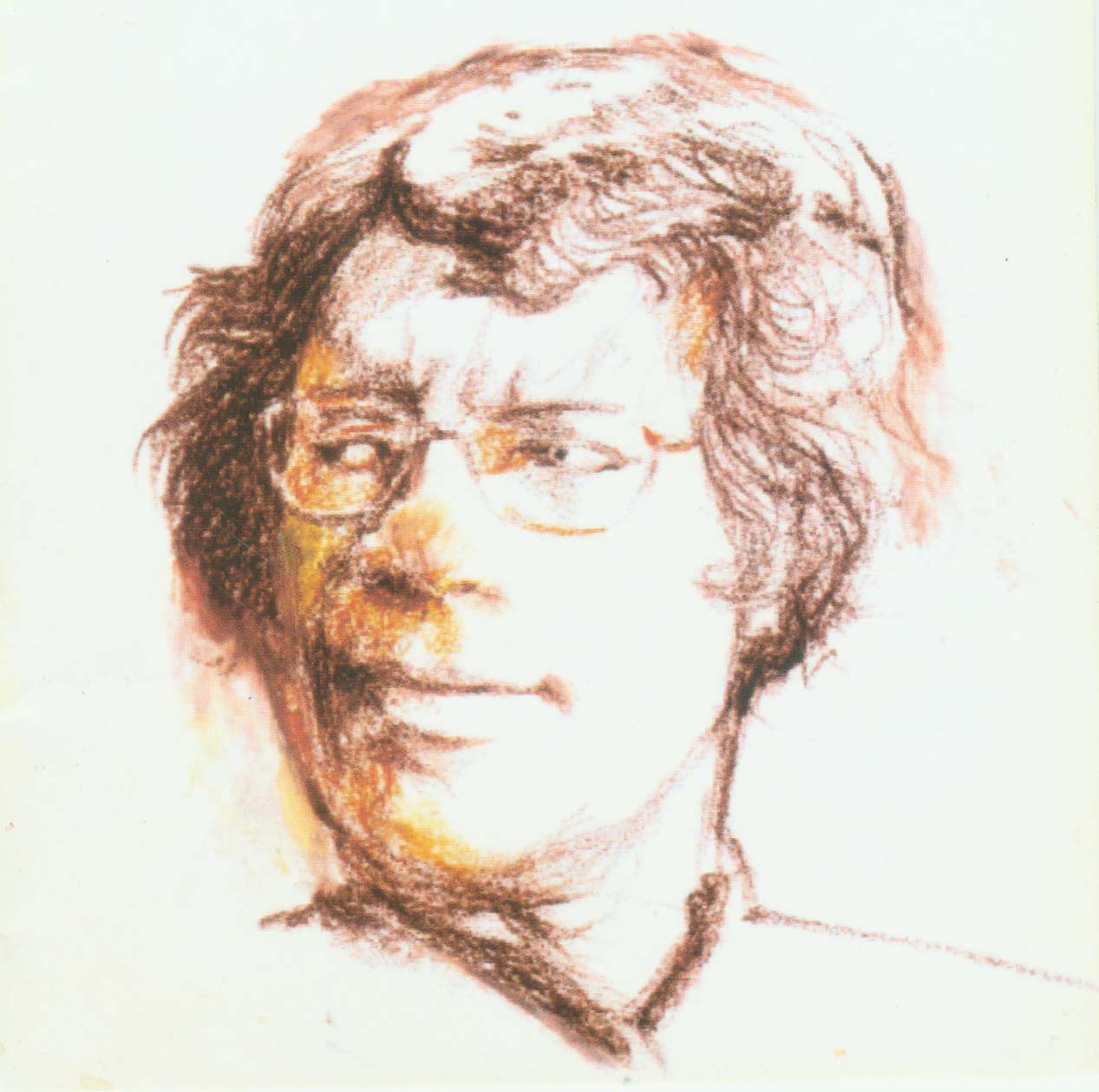
|
|
||||
|
Sudden
demise of an iconoclast whom I never met Prof.
Humayun Azad (1947-2004)
Dr. Humayun Azad (Sketch by Sanjib Datta)
“Some
things that fly there be, -- Birds,
hours, the bumble bee: Of
these no elegy.” —
Emily Dickinson Our
friend Humayun Azad has gone to a place where he could have a staid
sleeping. He does not have to
worry about the constant barrage of threatening and menacing phone calls
from few his countrymen who never saw flowers in his writings; only the
thorns that adorned his creative works bothered them immensely. Early
in the morning on Friday, August 13, 2004, Jahed Ahmed, an activist from
Atlantic City, New Jersey, woke me up.
His grave voice in the telephone gave me a chill.
He told me that Prof. Humayun Azad of Dhaka University had passed
away. “Where?
When?” I asked
impatiently. A nervous Jahed
Ahmed told me that the writer had gone to the other world in his sleep in a
dormitory room in Munich Germany. I
was privileged to know that Professor Azad was heading to Germany anytime
soon. He badly wanted this.
For him, life in Bangladesh was synonymous to living in the hell.
Thanks to some of the menacing Islamic extremists who were hell-bent
on killing him on the charge of being an apostate. Unlike
all of us who have to die once in their lifetime, Professor Azad died twice.
On February 27, 2004, as he exited the Book Fair from Bangla Academy
premise, a bunch of religious extremists jumped on him trying to decapitate
the pedagogue. The sustained
injury put him into death-like condition for over four-five days.
He was in coma. He came
out of his transient death and went on to live for extra 166 days.
The army doctors in CMH gave him the critical care in the wake of his
deadly attack. Then he was sent to Bangkok by the government for additional
medical treatment. Among other
medical treatment, he needed an extensive plastic surgery to erase the signs
of the brutal attack. Prof.
Azad returned to Dhaka triumphantly after a month-long treatment in abroad.
And we wishfully thought his trouble with Islamists was over.
But how wrong we were in our simple assumption! No
sooner Professor Azad could rehabilitate to his normal life, a fusillade of
threatening phone calls starts coming to him and his family members.
In July 2004, his only son, Anonnya, had a run in with some virulent
Islamists as he was returning from school.
They tried to abduct him. However,
due to Anonnya’s presence of mind, he foiled the Islamists’ attack.
Another tragedy was averted. However,
that incident gave Professor Azad a jolt.
In the fag end of July 2004, sheer out of desperation Prof. Azad took
up the pen to write one of the most heart-wrenching articles in Bangla.
He was bitter about the way life was treating him.
Islamists who hated him for his writings were constantly calling
threatening him over the phone. He
became virtually a prisoner in his own home.
As a last ditch effort he penned a short article in which he
beseeched the prime minister, the main opposition leader, and the
compatriots. He wanted to live
amidst his loving and caring family members and be productive.
But the extremists had other sneaky ideas. They unleashed their barrage of threatening phone calls.
They even said they would plant a bomb in Professor Azad’s flat. Dhaka’s
vernacular newspaper Janakantha published Professor Azad’s moving article.
A copy was rushed to us for translating it to English.
It was an emotional write-up. The
translated copy was rushed electronically to Professor Azad for his
approval, as he was getting ready to visit Germany.
He however took time out to read our translation of his swan song. He approved it for publication.
That was the last I heard of our professor friend.
We knew that he was heading for Germany.
We, his well wishers, heaved a great sigh of relief knowing that he
would be far from harm’s away in Germany where he could devote his time to
passion, i.e., writing. But
little did we know what was in store for him.
Death’s cold hand had touched him so abruptly.
Now we are grieving his untimely death. Professor
Azad and I were born in the same year.
Therefore, his death has special meaning to me.
The very impermanence of life must have bothered every one of us.
His premature death is a poignant reminder that life is short but art
is long. Professor Azad
belonged to a rare literati class of Bangladesh whose number is diminishing
by the day. His family members,
colleagues, students, freethinkers, and well-wishers will sorely miss him. Professor
Azad was a lifelong fighter whose only weapon was his pen.
He was a rare breed of freethinker in Dhaka.
I consider him a true iconoclast for his writings were directed
against traditional or popular ideas and institutions.
This
is time for grieving and not pointing fingers at those who are responsible
for his premature death. With
saddened heart, I am reminded of this short poem written by American poetess
Emily Dickinson perhaps directed to our fallen angel, Humayun Azad: “To
fight aloud is very brave, But
gallanter, I know, Who
charge within the bosom, The
cavalry of woe. Who
win, and nations do not see, Who
fall, and none observe, Whose
dying eyes no country Regards
with patriot love. We
trust, in plumed procession, For
such the angels go, Rank
after rank, with even feet And
uniforms of snow.”
------------------ A.H.
Jaffor Ullah writes from New Orleans. His e-mail address is - Jaffor@netscape.net
|
||||
